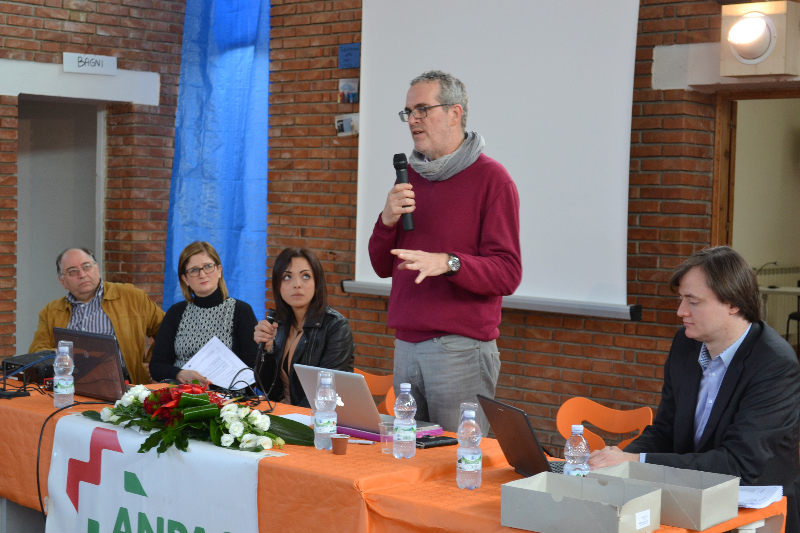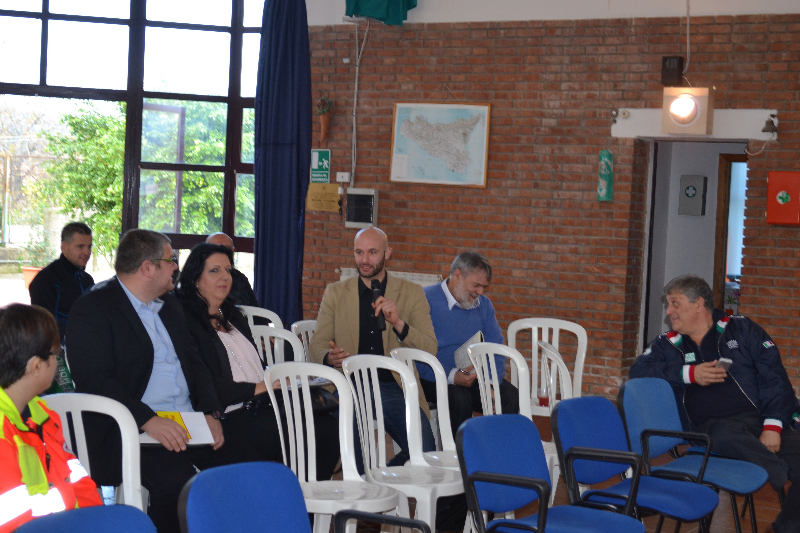ADAPT: Samaritans continue work on better emergency evacuations for vulnerable groups
Posted on |
 From 18-20 November 2015, the project partners of the ADAPT project met in Saponara, Sicily, to continue the conceptualisation of a data platform to improve the support of vulnerable people in case of emergency evacuations.
From 18-20 November 2015, the project partners of the ADAPT project met in Saponara, Sicily, to continue the conceptualisation of a data platform to improve the support of vulnerable people in case of emergency evacuations.
The ADAPT project aims to make information about elderly people or people with disabilities available to disaster relief workers in case of emergencies. This way, help according to the target group’s special needs, e.g. whether they need assistance walking or if special vehicles for transport are necessary, can be rendered in case an evacuation is necessary. Four communities in disaster risk areas in three countries are participating in the project. The communities are in the operative regions of the four participating Samaritan organisations ANPAS, ASB, DKFH and WK. In addition, the project is supported by the University of Rome Tor Vergata.
The second workshop took place in the operational centre of the local branch of ANPAS, one of the Italian project partners. The choice of locale underlined the significance of the project for the participating communities: The very building in which the workshop was held was all but destroyed by a flood in 2011 and had been restored by the local hosts.
 The first conceptual points for the ADAPT data platform were collected at the previous workshop in Bolzano earlier this year. In Saponara, the group discussed the open points in more detail. Since the last workshop, the project’s legal subcontractor had also worked out preliminary guidelines on open questions regarding data protection, which were also presented at the workshop. Local stakeholders such as disaster relief workers and municipal representatives from the participating communities participated in the exchange.
The first conceptual points for the ADAPT data platform were collected at the previous workshop in Bolzano earlier this year. In Saponara, the group discussed the open points in more detail. Since the last workshop, the project’s legal subcontractor had also worked out preliminary guidelines on open questions regarding data protection, which were also presented at the workshop. Local stakeholders such as disaster relief workers and municipal representatives from the participating communities participated in the exchange.
With the collected information from the workshop and technical contacts from the stakeholders, the project’s IT service provider will be working out a draft concept for the core data platform. This draft will once again be checked with the local levels, before a working preview will be created for the next workshop.
Besides the evaluation of the first version of the data platform, the next workshop will focus on the main non-technical challenge of the project: To enable the communities to collect and maintain high-quality information to be prepared for emergencies. This will include considerations about dissemination as well as shared maintenance responsibilities among public and private stakeholders on the ground in each of the participating communities.
The ADAPT project is co-financed by the European Commission, DG Humanitarian Aid and Civil Protection.

